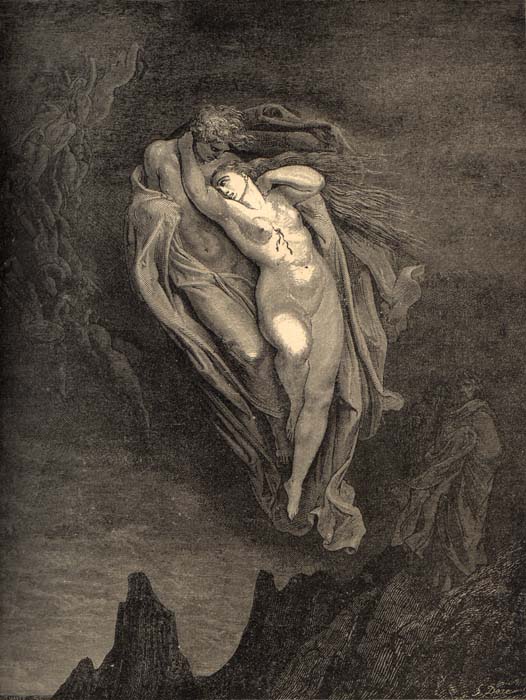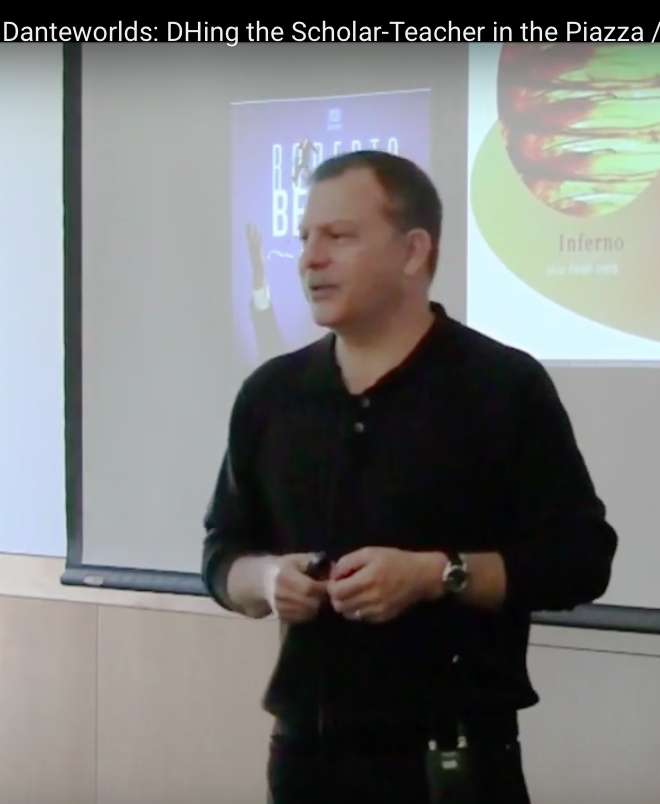Dante’s Hell and Its Afterlife
“Today’s features include updates on Francesca and Paolo’s love affair, a human hurricane, and today’s unlucky lottery numbers,” announces the anchor of Circle 2 News.”
The infernal meteorologist, live on the scene, wonders why he must report each day on a storm that has been buffeting souls, once subject to the winds of passion, “for the past millennium with unchanged conditions.” After informing viewers that the Trojans, despite their vaunted defense, were done in by “the Greeks’ tricky plays,” the sportscaster reveals that Paris, newly arrived in the circle of lust for having abducted Helen, thought “the great Achilles was just overrated.” . . .
Read more here
______________________________________________________________________________
Danteworlds: DHing the Scholar-Teacher in the Piazza
(Presented at FL@DH, University of Texas at Austin, February 6, 2016)
In this talk celebrating the ten-year anniversary of the Danteworlds website, I reflect on how work in digital scholarship creates game-changing possibilities for the integration of college research and teaching. A much celebrated union in administrative talking points for internal and public consumption, the scholar-teacher often loses its hyphen in practice, the primary functions of academic life going their separate and unequal ways. Drawing on my experience with Danteworlds—its conception, creation, and use—I show how digital scholarship honors the interdependence and mutual benefits of research and what happens in physical and virtual classrooms. Just as important, it does so by bringing the work of scholar-teachers outside the walls and firewalls of the academic tower and into the piazza.
Watch the full video here.
______________________________________________________________________________
Google 4.0: Strong Humanities Majors Wanted
When Laszlo Bock, of Google, tells the columnist Thomas Friedman, of The New York Times, that he would prefer to hire a computer-science student with B grades over an A-plus student who studies English, it doesn’t surprise me. Google is in the business of computing, after all.
But then I read Bock’s rationale, and that’s when I nearly lose a mouthful of Cheerios: Unlike English—and presumably other non-STEM fields—computer science “signals a rigor in your thinking,” an ability “to think in a formal and logical and structured way.” He said what? . . .
Read more in The Chronicle of Higher Education, May 28, 2014



